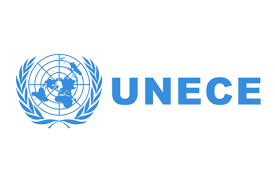Circular STEP
Circular STEP serves as a platform for the dissemination of UNECE tools developed through normative intergovernmental processes, and offers a broad range of activities, including developing and disseminating evidence-based good policy practices, creating new opportunities, and facilitating dialogue and knowledge sharing among participants.
Circular STEP, UNECE’s Circular Economy Stakeholder Engagement Platform has the objective to help “step-up” the circular economy transition, fill gaps and create synergies among the many practical and value-creating initiatives in support of the circular economy transition.
Item Assessment information
Needs addressed
- Developing strong governance and policies
- Scaling sustainable and circular business models
- Adopting SCP norms, technologies and practices
Leaving no one behind
- Enhancing SCP practices and collaboration between key stakeholders (public and private)
Applicability
- Evaluated Proof of Concept
- Applicable multiple countries
Organizations

-
12.1
-
12.2
-
12.3
-
12.4
-
12.5
-
12.6
-
12.7
-
12.8
-
12.a
-
12.b
-
12.c
How does the tool make an impact on SDG12?
SDG12.1 Circular STEP helps developing countries in Europe and Central Asia to develop and implement SCP policies and strategies
How does the tool make an impact across SDGs?
SDG8 By leveraging a circular economy in developing and transition countries, Circular STEP fosters the creation of jobs for all to improve living standards, providing sustainable economic growth
SDG9 Circular STEP promotes knowledge exchange from key experts, fostering innovation and the use of blockchain and other technologies
SDG10 Circular STEP aims at supporting developing and transition countries. Hence, aid aims to support countries that do not have access to resources and knowledge
SDG13 Circular STEP fosters a Circular Economy transition, thereby reducing emissions, promoting renewable solutions
SDG 17 Circular STEP fosters multi-stakeholder partnerships, especially when supporting countries in their journeys to a circular transition in key countries


